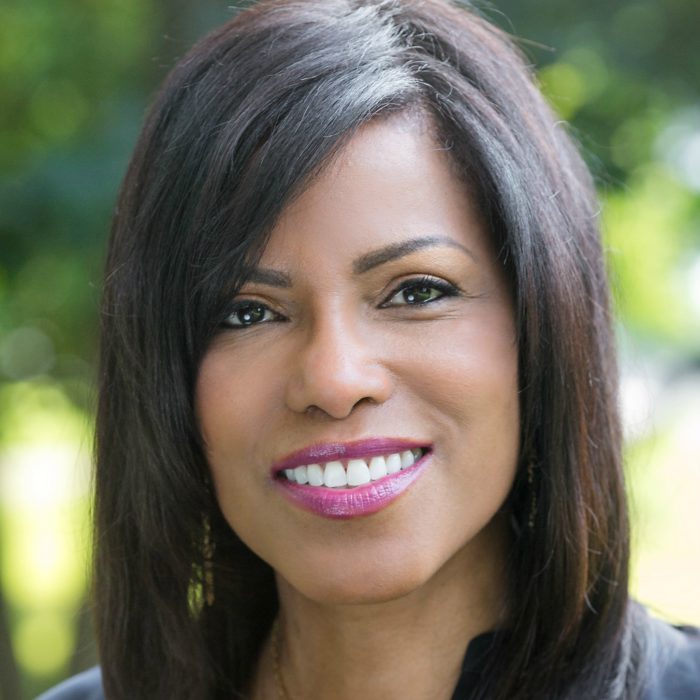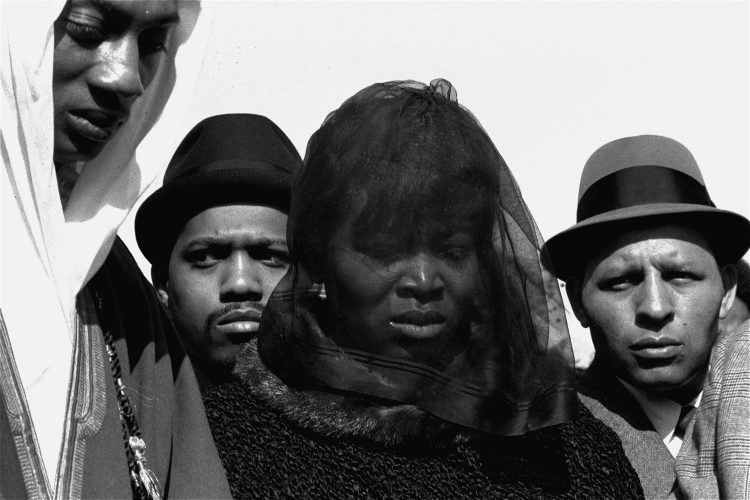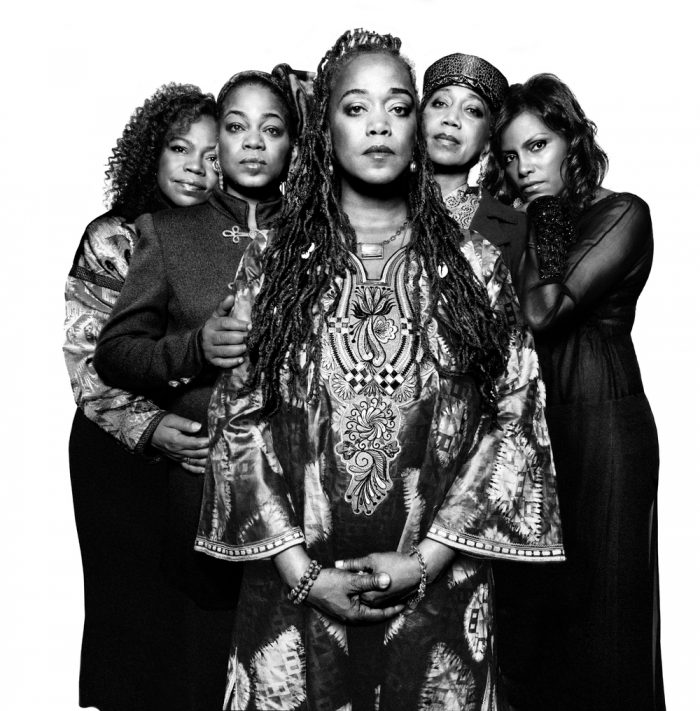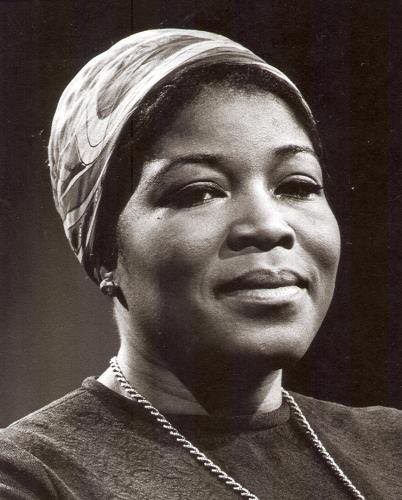The symbol of racial equality and integration during the 1960s was Dr. Martin L. King, Jr., but the role model for Black independence and empowerment was Malcolm X. A prominent member and national spokesperson in the Nation of Islam (NOI) under the leadership of Elijah Muhammad, Malcolm X gained popularity through his influence of building the membership of NOI.

The son of a Baptist minister, his parents, Earl and Louise Norton Little, fled their home in Omaha, Neb., because of their beliefs in the teachings of Black Nationalist leader Marcus Garvey. The threats from the White supremacist group the Black Legion would soon follow the family to Lansing, Mich., where Earl Little’s body was eventually found over train tracks.
After the death of his father, Malcolm’s life would never be the same and took a turn that would introduce him to the ill fate of the streets. He served time in prison and converted to Islam. When he was released, he joined the NOI.
His influence and public persona would grow, and his marriage to Betty Shabazz in 1958 would produce six daughters. After growing discernment and tension in the NOI, he chose to leave, starting his own organization—Muslim Mosque, Inc. His departure from the NOI in 1964 would lead him to a pilgrimage to Mecca where he would begin an eye-opening discovery of Islam—spanning across cultural and racial lines.
After countless FBI surveillance and wiretaps, monitoring his every move—he was warned of constant death threats. At one point, the family home was firebombed while everyone safely escaped—a few days later the 39-year-old fearless leader would be assassinated on February 21, 1965, by members of the NOI.
With his pregnant wife and four children in close proximity of the shooting—his youngest child at the time had no recollections of the brutal murder. At 2, Ilyasah Shabazz would be followed by two additions to the family when Mrs. Shabazz gave birth to twin girls later that year.
Over the next two decades, the daughters of Malcolm and Betty Shabazz would live a near-to-normal life in the community of Mount Vernon, NY, attending boarding schools and away from the media glare.
Growing up in the middle class suburban community, Ilyasah Shabazz recalled how her mother would make sure the family understood the man her father was outside of the public persona.

Malcom, Muslim and Racism
“My mother, she kept all our father’s belongings in our house so we always knew daddy.
She would talk about him all the time. If we did something great, she would say you know ‘daddy would be so proud of you.’ And if it wasn’t so great, ‘daddy wouldn’t like that.’ We got it,” she said.
“We made sure that we knew about our father and his humanity, understanding and knowing the person. This meant that you understood that you knew this person of compassion, of love—someone who was really smart, brilliant and focused on what his work was about.”
Although we can recall the powerful images of Malcolm by the window equipped with rifle—standing his ground, Mrs. Shabazz did not live by the media image of her husband.
“She didn’t focus on injustices in society which is quite the climate of the day. Also, she didn’t focus on the hate and the racism. She focused on daddy, the loving, kind man that he was.”
Coming in contact with her first incidence of racism, Ilyasah remembers an incident involving a high school classmate whose home was burglarized. “I had a very good girlfriend and her house had been robbed and she said, “those n*ggers.” I was really shocked. N*ggers? I remember her apologizing and saying, ‘well you know you’re not black, black’,” she said.
The incident left her with not much surprise but more with understanding how ignorant people can be regarding prejudice. But, it was in college where her experience with Black students would shape a clearer perspective of people in general.
“I think that was painful. With White people, it didn’t matter because for me if it was something against Black people, I knew it was their perspective and they were ignorant as far as I was concerned. But when it came to my own people whom I grew up thinking ‘we were great,’ it was one of the most painful experiences.”
As a student at State University of New York at New Paltz, it was assumed she would represent the same virtues and images of her father and perform in the same mannerism– especially from fellow Black students. The backlash was surprisingly daunting.
What was taught in her household was the achievements and history of the positive influences of African Americans.

She thought, “There was nothing wrong with us. There was no bad there. We were just great. So, when I went to college and here we are all young people and we’re finding our way and defining ourselves and whatever we’ve experienced in life is who we are—that was painful for me. I was really a very friendly person—door wide open. Then I experienced some things that weren’t that great.”
Going home and upset, she asked her mother if she could move off-campus, and without hesitation, her mother said yes.
“I was really grateful for that. But my mother had six daughters. She was paying for each of her girls to go to school. How difficult had that been for her? Although she never showed it because she wanted us to feel proud. She only focused on building us up and not letting us see what could break us down. How grateful I am to her—just to be the woman she believed in. And because of that—I felt invincible.”
Dr. Betty Shabazz died on June 23, 1997.
Meaning Behind Books
An adjunct professor at John Jay College of Criminal Justice, Ilyasah Shabazz has authored several books including her memoir Growing Up X (2002); a children’s book, Malcolm Little: The Boy Who Grew Up to Become Malcolm X (2014) and X (2015), the novel for young adults.
“My children’s book is for children to see themselves in a positive manner and also learn something good about themselves as well as provide more accurate information to my father’s childhood and foundation. His parents were very significant in his life and in the [Marcus] Garvey movement. My father basically stepped into his father’s shoes and it’s a really beautiful story for me.”
Her books have won numerous literary awards. She also received an NAACP Image Award for Outstanding Literary Work, Youth Teens, for X, the novel.
Writing and telling the stories of both parents is an important way of revealing the truth in their legacies. “It’s funny when I was a child I loved writing. My mother made sure that we had books. What I write is not so much for me, but it’s to make sure the information about their lives is accurate,” said Shabazz.
“When young people are reading them, they are able to find a correlation between themselves and whatever the information is that they are reading and understand their power, value, responsibility back to society, responsibility to themselves and sometimes to their families,” she said. “We think of history and we know that there was a ‘rites of passage’ that we taught young girls how to be women and young boys how to be men. And now that is no longer a part of our lives; I think it’s important to make sure that our young girls understand all of what it takes to be a woman,” she continued. “For our young people to understand those things and when they read, they’re able to find stories with which they can identify.”

Shabazz discussed the special relationship between Marcus Garvey and her grandfather, who at the time was the president of the Milwaukee Chapter of the Garvey movement. At the time, Garvey was a frequent visitor to the Little household and was arrested for alleged mail fraud to quiet his independent influence of Black citizens.
“My grandfather, who was a young man at the time, sent a letter to President Coolidge suggesting that or encouraging him to have him released from jail because the charges weren’t true. When you see the letter, it reminds me much of Malcolm because he says, ‘if you do good work, not only will history remember you but God will remember.’ That is in the childhood book. The young adult book is about the challenges of losing your parents and not being able to fulfill the dreams they said you could fulfill.”
Growing up, she said Malcolm was the top of his high school class and aspired to be a lawyer to help people but was discouraged by one of his favorite teachers who believed Black people’s role was reduced to labor related jobs.
“Just thinking of the pain in that and not having parents to say ‘No, Malcolm you can do this, you can be all the things that we said you can be. Then that journey of finding himself. So that’s a young adult adolescent book. I have a book that’s coming in January called “Betty Before X” and it’s a beautiful story of a young brown girl in the 1940s in Detroit discovering herself.”

Young Betty
Betty Shabazz grew up in Detroit during the Great Migration when Black Southerners made their way to northern cities trying to find better jobs and opportunities. In the post-war era, the meatpacking industry was considered big business. Susan Peck, the wife of reputable pastor Rev. Peck, organized the housewives of Detroit to boycott the meatpacking district and the companies providing the products.
“The church had thousands of members in their congregation including Thurgood Marshall and Paul Roberson—very historical people visited the church. It was there where these women got together and said if this industry is making so much money and they are not hiring our husbands, then we’re not going to spend our money here. So, the Detroit Housewives League became a national organization started right in Detroit,” she said.
“In my book, you get to follow Betty on her thoughts of fashion with her girlfriends, going to school and being able to march–marching because Leon Mosley was killed by a police officer, seeing the similarities in life during this time. What did they do about the injustices? It inspires and encourages all children to see that these were the things that were happening back then–much like what’s happening today.”
Preparing for the January 3 release of “Betty Before X” is one of many projects and obligations that keep Ilyasah Shabazz busy with speaking engagements and traveling on the road. She recently was in Chicago, as an ambassador for the Harlem Fine Arts Show at her father’s namesake college, Malcolm X. The three-day event brought out hundreds of attendees who participated in seminars, workshops and the opportunity to purchase great visual art by renowned and rising artists.
As a devout Muslim woman, she makes a point to dispel the prejudices of Islam and the fear associated with understanding the differences.
“I think it’s unfortunate because terrorism and terrorists have been defined for a reason. I was on a panel in Turkey talking about xenophobia and Islamophobia and what is a terrorist? Well it’s not even accurate; to say that most who identify as Muslims [are linked] with terrorism is the same as identifying Black people with crime. It’s all fictitious,” she explained.
“That gives someone the opportunity to start bombing, invading countries, taking oil, land and resources—among all these other things.”
She said she and her siblings continue to talk about the great works of their parents, as trustees for Malcolm X and Dr. Betty Shabazz Memorial and Educational Center and Malcolm X Foundation.
“I’m very proud because I understand the significant contributions that our ancestors made. It’s my and our responsibility to make sure our history is properly recorded.
We honor our people, considering all that we gave to world history. In Islam, I have an inner peace to do the work that I do and to be balanced in understanding that I’m not a second-class citizen.”
Follow Mary L. Datcher on Twitter